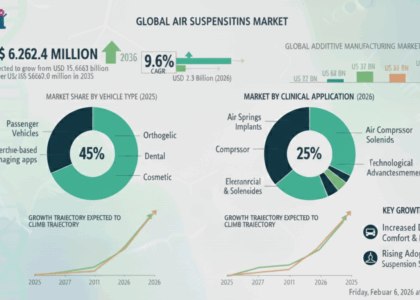The global fabric care market, long considered a staple category within consumer goods, is poised for significant expansion over the next decade. Valued at USD 116.3 billion in 2025, the market is projected to reach USD 210.2 billion by 2035, growing at a compound annual growth rate (CAGR) of 5.7% during the forecast period.
Once defined primarily by laundry detergents and softeners, the category is evolving rapidly under the influence of shifting consumer behavior, sustainability demands, technological innovation, and expanding access in emerging markets.
Unlock exclusive insights – Request your sample report! https://www.futuremarketinsights.com/reports/sample/rep-gb-8369
Key Growth Drivers
- Sustainability and Eco-Friendly Products: The growing demand for environmentally responsible products is reshaping the fabric care market. Manufacturers are developing biodegradable formulas, plant-based ingredients, water-efficient products, and recyclable or refillable packaging to meet new environmental standards and consumer expectations.
- Emerging Markets and Rising Incomes: Urbanization and increasing disposable income in countries across Asia-Pacific, Latin America, and Africa are fueling demand for convenient and high-quality fabric care solutions. Expanding retail infrastructure and access to e-commerce are enabling broader market penetration.
- Product Premiumization and Specialization: Consumers are increasingly seeking tailored fabric care products, including those designed for sensitive skin, specific fabric types, or premium clothing. Segments such as fragrance-infused detergents, antibacterial rinses, and color-protection solutions are gaining ground.
- Digital Transformation and E-commerce Expansion: Online platforms are becoming critical sales channels for fabric care products, offering consumers greater convenience and access to subscription-based services. Brands are leveraging digital engagement and direct-to-consumer (D2C) models to increase loyalty and recurring sales.
- Smart Home Integration: The adoption of smart appliances and home automation is influencing product development in the fabric care category. Smart washing machines with automatic dosing, fabric-specific settings, and app-based controls are increasingly paired with branded detergent pods or refills for optimal performance.
Market Dynamics and Competition
The fabric care market is characterized by high competition, with global conglomerates and emerging startups vying for consumer attention. Established brands continue to dominate shelf space, but niche and independent companies are gaining traction by offering sustainable and purpose-driven alternatives.
Innovation in product formulation, packaging, and delivery formats—such as detergent sheets, concentrated capsules, and refillable pods—is expanding the range of consumer choices and redefining convenience in fabric care.
Regional Outlook
- North America: High demand for premium products and growing awareness of environmental impacts are influencing product design and marketing. Digital channels continue to reshape distribution.
- Europe: The region is seeing robust demand for eco-labeled products. Regulatory frameworks in the EU are driving innovation in water-saving and energy-efficient formulations.
- Asia-Pacific: With rising populations and expanding urban centers, this region is expected to lead market growth through 2035. Investment in local manufacturing and distribution is intensifying.
- Middle East & Africa: Economic development and urban expansion are gradually increasing the market footprint, though infrastructure limitations remain a barrier in some areas.
Future Trends and Innovations
The next decade may bring further advancements in fabric care through biotechnology, artificial intelligence, and automation. Future products may feature enzyme-based cleaners, dirt-repellent fabric treatments, or AI-powered laundry systems that optimize cleaning based on fabric type and usage history.
With growing alignment between fabric care and health, hygiene, and sustainability, the industry is set to become more integrated into consumers’ broader lifestyle and wellness ecosystems.
Key Segmentation
By Product Type:
Detergents, Fabric Softeners & Conditioners, Stain Removers, Bleach, and Others.
By Form:
Liquid, Powder, Pods & Tablets, and Sprays.
By Sales Channel:
Supermarkets/Hypermarkets, Convenience Stores, Online, Departmental Stores, and Others.
By Region:
North America, Latin America, Europe, South Asia, East Asia, Oceania, and the Middle East & Africa (MEA).
Access the complete industry report—buy now! https://www.futuremarketinsights.com/checkout/8369
About Future Market Insights (FMI)
Future Market Insights, Inc. (ESOMAR certified, recipient of the Stevie Award, and a member of the Greater New York Chamber of Commerce) offers profound insights into the driving factors that are boosting demand in the market. FMI stands as the leading global provider of market intelligence, advisory services, consulting, and events for the Packaging, Food and Beverage, Consumer Technology, Healthcare, Industrial, and Chemicals markets. With a vast team of over 400 analysts worldwide, FMI provides global, regional, and local expertise on diverse domains and industry trends across more than 110 countries.
Contact Us:
Future Market Insights Inc.
Christiana Corporate, 200 Continental Drive,
Suite 401, Newark, Delaware – 19713, USA
T: +1-347-918-3531
For Sales Enquiries: sales@futuremarketinsights.com
Website: https://www.futuremarketinsights.com
LinkedIn| Twitter| Blogs | YouTube





